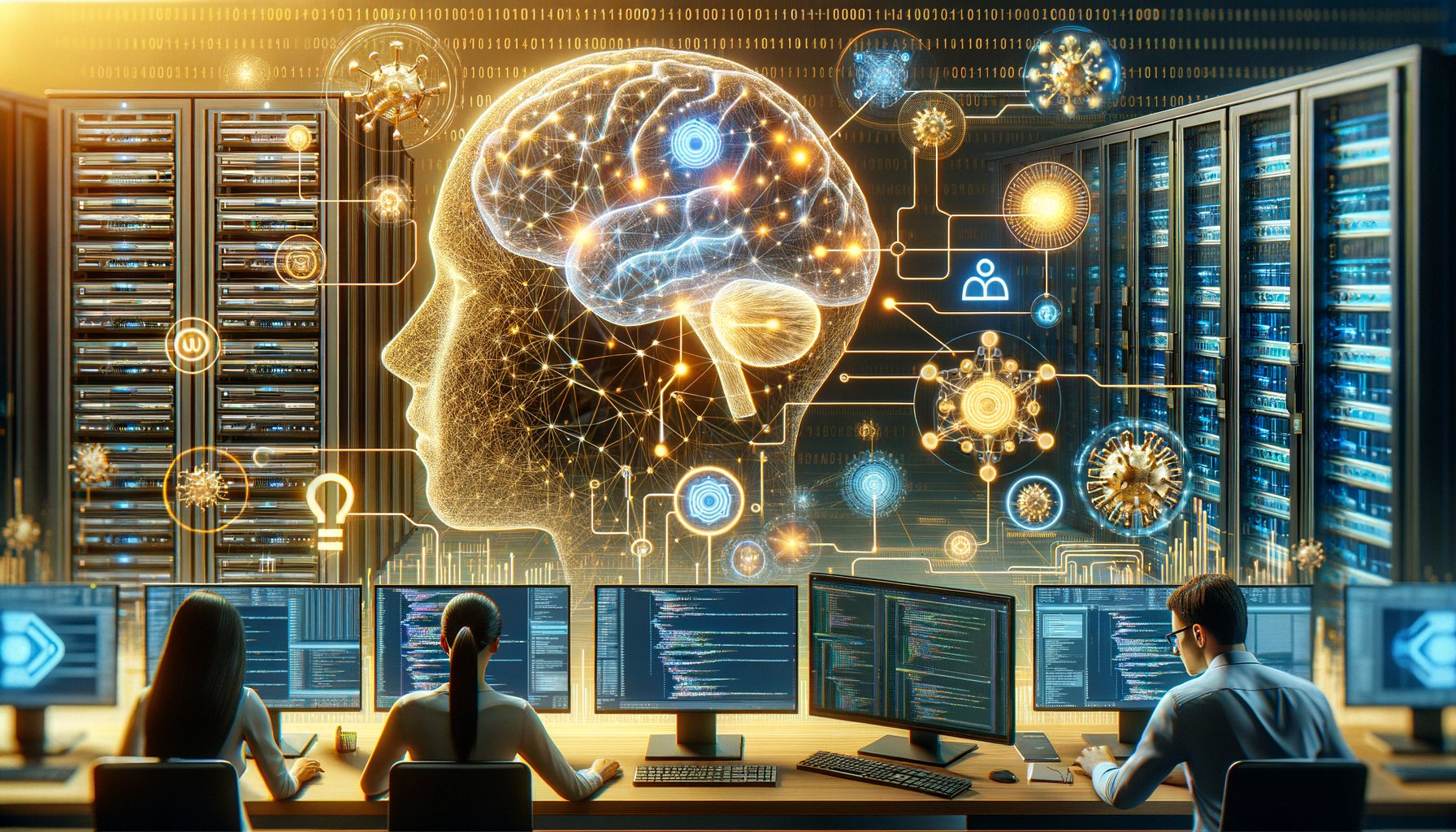Physical Address
304 North Cardinal St.
Dorchester Center, MA 02124
Physical Address
304 North Cardinal St.
Dorchester Center, MA 02124

The advent of Artificial Intelligence (AI) has brought about a paradigm shift in various sectors, and software development is no exception. As we stand on the cusp of a technological revolution, it’s worth exploring how AI will shape the future of software development.
One of the most profound impacts of AI in software development is its potential to automate code generation. AI-powered tools such as Kite, Codota and Tabnine are already making waves by providing developers with real-time coding assistance, reducing manual effort and increasing productivity.
These tools utilise Machine Learning (ML) algorithms to analyse vast repositories of code and provide relevant suggestions as developers type. This not only speeds up the coding process but also helps avoid errors, ensuring cleaner and more efficient code.
Bugs are an inevitable part of software development. However, identifying and fixing these bugs can be time-consuming. Here’s where AI comes into play. With its ability to learn from historical data, AI can predict potential issues before they occur based on patterns from past bugs.
This proactive approach to debugging not only saves valuable time but also improves the overall quality of the software being developed. Tools like DeepCode leverage AI to scan your code for potential issues, offering suggestions for fixes even before you commit your changes.
Project management is a critical aspect of any software development project. With AI, managing projects becomes more streamlined and efficient. For instance, predictive analytics powered by AI can help project managers anticipate potential roadblocks or delays in the project timeline based on historical data.
This foresight allows teams to take proactive steps to mitigate risks, ensuring projects stay on track. Tools like ClickUp and Zoho Projects are integrating AI capabilities to improve task allocation, time tracking, and overall project management.
As software systems become more complex, the risk of security breaches increases. However, AI can help bolster security measures by detecting anomalies and potential threats in real-time. Machine Learning models trained on vast datasets can identify patterns associated with malicious activities and alert teams immediately.
This proactive approach to cybersecurity could prove invaluable in protecting sensitive data and maintaining system integrity. Companies like Darktrace are pioneering this field with their AI-driven cybersecurity solutions.
AI is not just transforming how software is developed but also how it’s used. With its ability to analyse user behaviour patterns, AI can help create a more personalised user experience. Whether it’s recommending products based on past purchases or tailoring content according to user preferences, AI is set to redefine user engagement in software applications.
While the future of AI in software development looks promising, there are challenges that need addressing. For instance, the reliance on historical data for training AI models raises concerns about bias and fairness. Also, there’s the fear of job displacement due to automation.
However, it’s crucial to remember that while AI can automate certain tasks, it cannot replace human creativity and problem-solving skills which are at the heart of software development. As such, developers should view AI as a tool that enhances their capabilities rather than a threat.
In conclusion (never finish an article with this), as we navigate through this exciting era of technological advancement, one thing is clear: Artificial Intelligence will play a pivotal role in shaping the future of software development. From automating mundane tasks to enhancing security, AI holds immense potential to transform the way we build and use software.